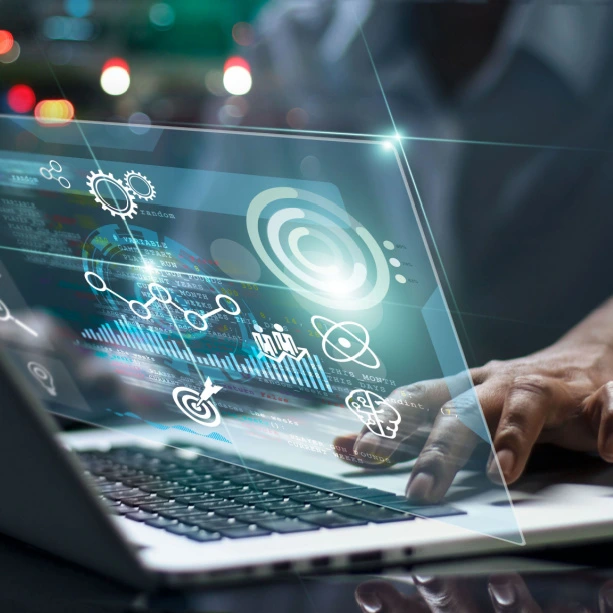Technology innovation is happening rapidly and transforming businesses. One of the fastest-growing technologies is artificial intelligence (AI). AI has many branches and each of those branches is unique and complex. A significant branch of AI is machine learning which has a developing branch known as deep learning.
What is Deep Learning?
Deep learning is a form of AI that resembles humans gaining knowledge. Deep learning drives applications to improve automation and perform analytical tasks such as humans do. If you have ever used Siri on your phone or driven a self-driving car, then you have used deep learning technology before. Deep learning is seen in everyday life without most people even knowing what it is.
Join the AirFinder Difference!
- Innovation. Organizations can be freed up to innovate and bring more impactful products and services to market.
- Profitability. Increased profitability provides new opportunities to innovate and improve valuation.
- Digital Transformation. Discover competitive advantages, new revenue opportunities, improved customer relationships and increased efficiency.
Deep Learning vs. Machine Learning
Deep learning is technically a subset of machine learning, but they do have a few differences. Deep learning skips any pre-data processing that comes with machine learning. The algorithms involved in deep learning can process unstructured data, unlike machine learning. Deep learning is much more intelligent and can determine the specifics of text and images just like humans can. On the other hand, machine learning still needs humans' help to process that type of data.
How Does Deep Learning Effect Supply Chains?
It’s nearly impossible for supply chains to be managed manually. It costs time and money and allows space for human error. Some processes, including supply chain management, can be automated as technology advances. This is where deep learning comes into play. As a form of AI, deep learning automates processes and reporting for the enhancement of your business.
Why is automation important for your supply chain? By incorporating automation technology into the supply chain, your business can track the location of their pallets and crates in real-time. Companies can even address delivery problems as they occur and plan ahead. Here are a few benefits of supply chain automation:
- Minimizing Loss
- Minimizing Human Errors
- Increasing Supply Chain Visibility
- Improving Customer Experience
Deep Learnings Effect on Sustainability
Deep learning is essential for the overall advancement and sustainability of your business’ supply chain. Deep learning helps your supply chain become organized and efficient through automation and processing. By having an organized supply chain, the overall efficiency and sustainability of your business will increase dramatically. Learn how Link Labs is striving to provide supply chains with the most sustainable asset tracking system on the market!.webp?width=1000&name=Sustainability_banner%20(1).webp)
Making the Change to Automation
Link Labs provides an asset tracking solution, AirFinder, to automate supply chains for companies. AirFinder locates and monitors assets in real time and puts the data into a reporting structure for end-users to view. To learn more about AirFinder and what it can do for you, visit our website and book a demo with our team of experts today!




